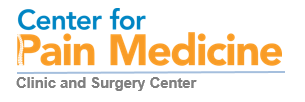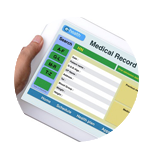Herniated Disc
A disc is a gel-like structure between your back bones (vertebrae). Discs are prone to wear and tear from aging or injuries. A weakened disc may rupture or bulge, putting pressure on the spinal nerve roots. This is known as a herniated disc and can cause intense pain.
Symptoms:
Herniation commonly occurs in the lumbar spine (lower back), but it can also occur in the cervical spine (neck). Many people experience no symptoms from a herniated disc, however a herniated disk can irritate nearby nerves and result in pain, numbness or weakness in your arm or leg. Pain is typically aggravated by coughing, sneezing and straining.
A disk herniation in the lower back may cause an intense pain in your buttocks, thigh, calf and foot. A herniated disc in the neck can cause an intense pain in your shoulder, arm and hand. The most common cause of disc herniation is disc degeneration which is age related. By aging, we lose water content in our discs and that can make our discs prone to wear and tear. Trauma, injury or fall can also be a cause of disc herniation.
Risk factors:
Risk factors for disc herniation include: obesity, repetitive lifting, pushing and pulling. Some people also have a family history for degenerative disc disease and are prone for disc herniation.
Testing:
The majority of patients with a disc herniation do not require immediate medical care. However, if pain is associated with fever, chills, leg weakness or loss of bladder and bowel control you must contact your doctor.
Physical examination is the first step to assess the cause of your pain. Your doctor may order X-ray, MRI, CT scan, or nerve conduction studies to find out the exact source of your pain.
Treatment:
Over the counter medication such as Ibuprofen, Naproxen and Acetaminophen may be recommended. Muscle relaxers, antidepressants and anti-seizure drugs may be helpful as well. Other treatment options for pain related to a herniated disc are:
- Life style modifications
- Physical therapy
- Chiropractic treatment
- Epidural steroid injection
- Selective nerve root block
Some patients may eventually need surgery if they continue to have pain, weakness, numbness or loss of bladder and bowel control. Our providers will refer you to a surgeon if it is medically necessary.
Patient Portal
Log in to email the clinic, request an appointment, pay your bill, view your chart.
Patient Referrals
Center for Pain Medicine is accepting new patients. Please download the referral form and fax to 701-551-6984.
 Prescription Xanax Online Purchase Alprazolam Cheap Buy Alprazolam Online Europe Lorazepam Order Alprazolam
Prescription Xanax Online Purchase Alprazolam Cheap Buy Alprazolam Online Europe Lorazepam Order Alprazolam




